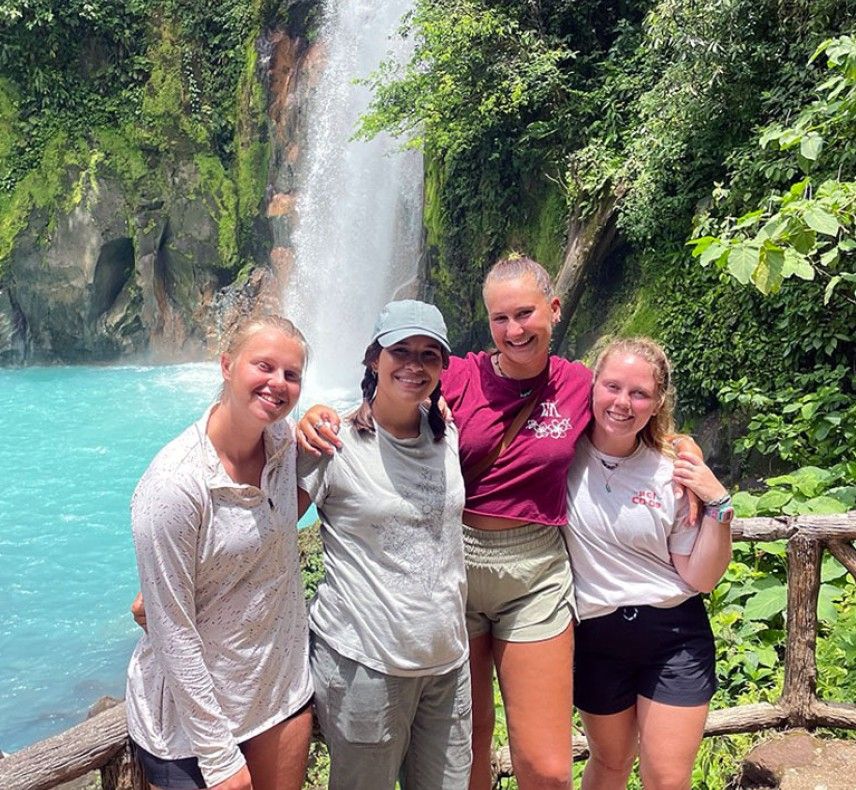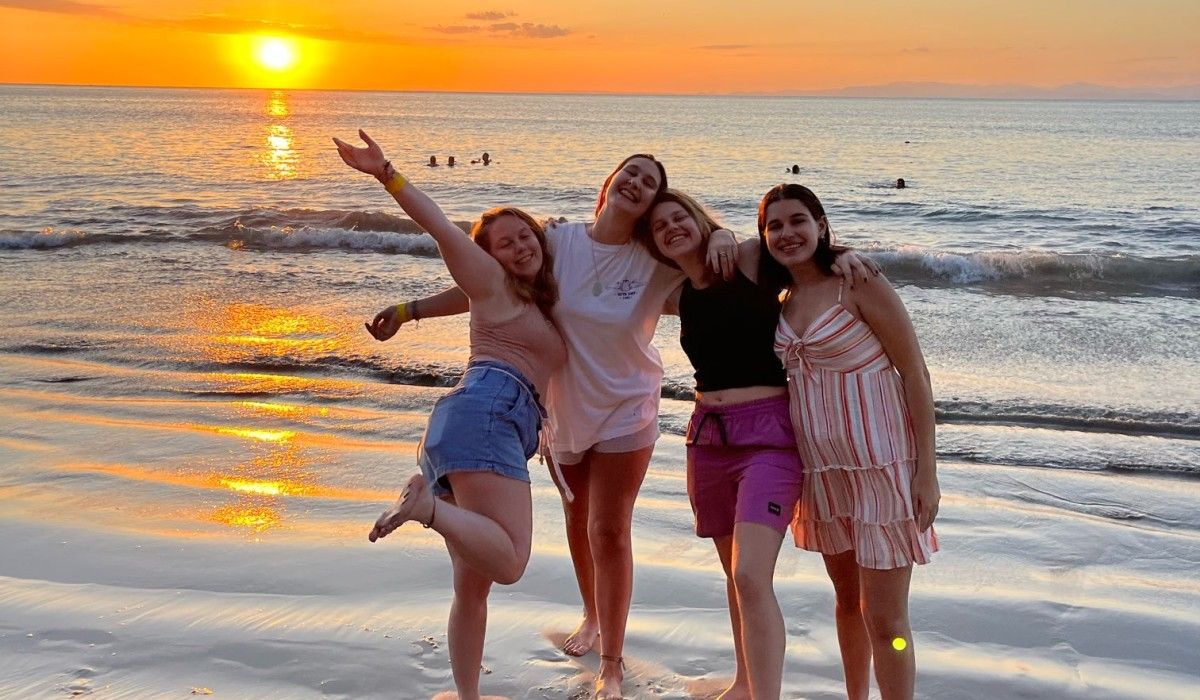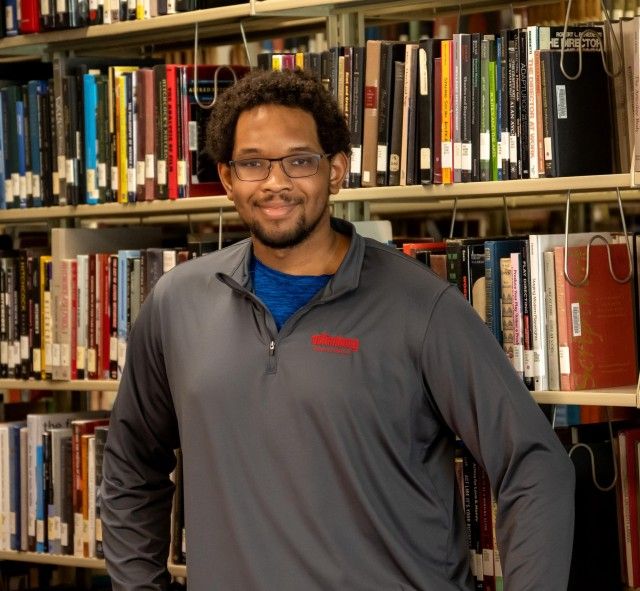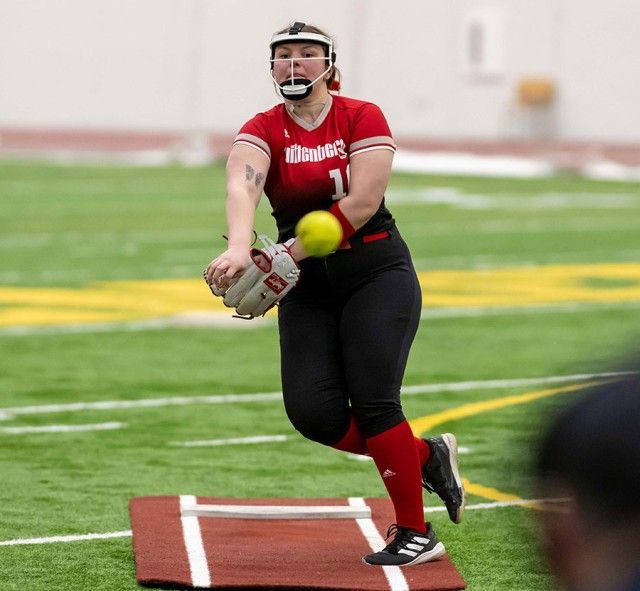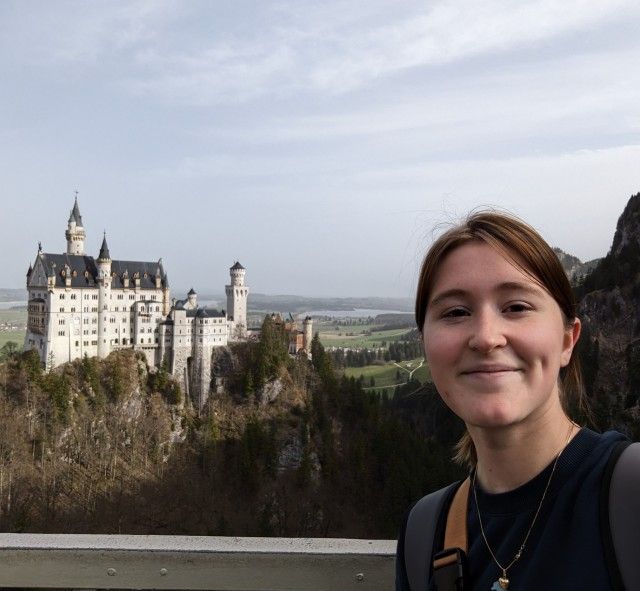A popular field of study that produces participatory citizens, Wittenberg’s environmental science (ES) program promotes community engagement, field work with local partners, research with award-winning faculty, and problem solving to ensure a sustainable natural world.
As society's actions increasingly affect the environment, Wittenberg ES students are working across disciplines to plan stream restoration, improve wetland planning, map soil pollution, monitor nuisance and endangered wildlife, and develop recommendations for parks, planners, and policymakers, among other efforts.
Opportunities in the field are endless, which four Wittenberg students learned firsthand in their time at the University. Three seniors and one junior have flourished through study abroad opportunities, FIRE Week (Focused, Integrated, Reflective Experiences) experiential learning, research, and internships with the Student Conservation Association (SCA) and the Ohio Environmental Protection Agency (EPA).
All four participated in Wittenberg’s Costa Rica semester and studied the politics of water in California’s Coachella Valley during FIRE Week 2024, Feb. 26-March 1.
Seniors Rylee Armstrong, Sadia Allalen, and Audrey Heiser along with junior Shayne Harris took the time to answer a few questions about their experiences at Wittenberg. See photos from their adventures at https://flic.kr/s/aHBqjBpxHQ.
Rylee Armstrong, Class of 2024
Hometown: Canal Winchester, Ohio
Major: Environmental Science
Minors: Marine Science and Biology
Wittenberg: Tell us about your recent internship experience.
Armstrong: “I worked this past summer on an all-women's fire crew in Alaska. This internship was through the SCA, a student conservation nonprofit group designed to help students and youth from all different backgrounds take on the many different aspects of the conservation world. The internship is also a way to bring women into a field heavily dominated by men (women only make up seven percent of all wildland firefighters). For this internship, we were put through guard school to become qualified as a Type 2 Firefighter and Chainsaw Feller A. Once we had our qualifications, we tackled fuels reduction projects in Wrangle St. Elias and Denali National Parks. Aside from the fuels reduction projects, we were given an opportunity to be put on a fire assignment in the state of Alaska. For my crew, we were put on the Lost Horse Creek fire just outside of Fairbanks, Alaska.”
Wittenberg: What has your experience been like so far at Wittenberg and how have you grown through those experiences?
Armstrong: “My experience at Witt has been so rewarding with all the opportunities that have been presented to me. If freshman-year me had been told I was going to be on a fire crew and work with chainsaws daily, I would have been so confused about how I got there. I have grown so much from when I first came to Wittenberg. I was a very reserved and quiet person. Now when I look back at how outgoing I have become, it makes me so happy to see who I’ve grown into and the person I’ve become.”
Armstrong, who is a member of Sigma Kappa, enjoyed her study abroad experience in Costa Rica where she lived with her host family and volunteered at the turtle rescue reserve, working with her group to help relocate eggs to the hatchery. After graduation, she is looking to move to Idaho or Montana to work in fisheries and stream monitoring.
Sadia Allalen, Class of 2024
Hometown: Upper Arlington, Ohio
Major: Environmental Science
Minors: Data Science
Wittenberg: Tell us about your recent internship experience and other opportunities you’ve experienced at Wittenberg.
Allalen: “The summer between my sophomore and junior year, I conducted research at Wittenberg and received a scholarship from the biological and environmental science department for my equipment and housing to fully focus on research. I submitted my research to the Geological Society of America for its 2022 convention in Denver, Colorado. I was also able to travel and stay in Denver with a scholarship from the Student Development Board. This was impactful for me because it provided me with a lot of experience and knowledge that I can apply to my future career and interviews. It was just for the summer, but it’s been my favorite summer position to this date because I enjoyed being able to work with data that I collected and then being able to analyze the data. This past summer, I worked with the Ohio Environmental Protection Agency. It was different from my last position because it was for a state agency. It was interesting to see how working with the environment translates into office and professional work. My future aspirations involve me working in environmental regulation or policy, so this was a great introduction to that world.”
Wittenberg: What has your experience been like at Wittenberg, and how have you grown through those experiences? Have these experiences shaped your perceptions and/or have they made you feel more prepared for what your career interests are?
Allalen: “It’s been a fast, but long four years here at Wittenberg. I have had the opportunity to do and be a part of a lot of opportunities that have shaped who I am. These experiences include my community service where I co-led, with a fellow student, a restoration project at Buck Creek, brought in an American Sign Language Club to Wittenberg's community, and everything in between. The small class sizes have allowed me to cultivate more personal relationships with my professors where I feel the freedom to explore all the opportunities that Wittenberg has to offer. My professors have created a classroom environment where I can explore and study real-life situations applicable for my future career endeavors. Their positive attitude and love for the subject matter has further fueled my passion for my major. At the end of these four years, I feel very prepared to continue into the professional world with the knowledge I have gained at Wittenberg.”
Wittenberg: What did you like best about studying in Costa Rica?
Allalen: Costa Rica was such an amazing and enriching experience that I was lucky enough to take part in. I loved being able to continue my studies in such a gorgeous and environmentally diverse country. It opened my mind up to different perspectives on climate change and the fight to conserve our natural resources. The ability to live with a host family was a unique experience to be able to learn about the culture and create connections on such an intimate level. I loved Mama Tica; she was such a lovely person who was always wanting to share stories and information about Costa Rica.”
A member of Sigma Kappa, Allalen also took part in the FIRE Week trip to California.
“I had friends who went last year, and I heard nothing but great things,” she said. “It was about the politics of water in California, and my future career aspiration is to do environmental policy or law, so this was a great learning adventure for me. I have greatly enjoyed my time at Wittenberg and everything the University has offered me in the last four years. I feel prepared and have the confidence to continue into graduate school and the professional world post-graduation.”
Audrey Heiser, class of 2024
Hometown: Arcanum, Ohio
Major: Environmental Science
Minors: Biology
Wittenberg: Tell us about your recent internship experience and other opportunities you’ve experienced at Wittenberg.
Heiser: “I interned at Tecumseh Land Trust in Yellow Springs, where I focused on creating maps and figures using ArcGIS that are used in the land grant application and documentation process. I also assisted in many outreach events, which gave me experience communicating scientific data to the public. In the summer of 2023, I worked in Green Mountain National Forest as a wilderness steward, focusing on hand-tool based trail work, campsite monitoring, and Appalachian Trail conservation outreach. I found this job on the SCA website. During the summer of 2022, I worked at Green River Preserve in the Blue Ridge Mountains of North Carolina. In this role, I served as an environmental educator, taking groups of up to 20 children on backpacking trips and teaching them about their local flora and fauna.”
Wittenberg: What did you learn about yourself while studying abroad in Costa Rica?
Heiser: “Studying abroad in Costa Rica was an incredible period of growth for me. Living in another country for four months without being confident in the native language and being dropped into a whole new culture forces one to learn to adapt, go with the flow, and learn from mistakes very quickly. I have gained such a new confidence through studying abroad. I now know I can do anything. I was able to learn this about myself while exploring the mountains, rainforests, and beaches of Central America, all while serving the local community by volunteering at a sea turtle sanctuary and after-school program.”
Heiser is a member of Sigma Kappa, Club Volleyball, and WUSS (Caving Club). She is also a peer mentor, a Tiger Team member, environmental science assistant, and Thomas Library student employee. Following graduation, she plans to pursue a career in outreach and community education focusing on conservation and restoration within the agricultural space, combining her appreciation for the environment, locally produced food, and how some agricultural practices can benefit farmers, ecosystems, and people within the community.
Shayne Harris, class of 2025
Hometown: Youngstown, Ohio
Major: Environmental Science and Biology
Wittenberg: Tell us about your summer internship and why you chose it.
Harris: “Last summer (from mid-June to mid-August), I camped and worked in the Willamette National Forest in Oregon. I was a part of an SCA crew that worked with the botany department. Most of our work was going into vulnerable areas of the forest, often sites that had been recently burnt, to assess and treat invasive plant species. We also surveyed for threatened species, like the Whitebark pine. We assisted on a research project analyzing the post-burn restoration of the Knobcone pine. We also had the opportunity to work with other departments, including helping with a bumblebee survey, and attending a meeting about a restoration plan for a burnt recreation area. My favorite part was being out in the mountains for work every day and being able to sit and eat lunch with an amazing view. I relished the opportunity to be able to work with a variety of natural resource professionals and see the diversity of work that is possible in one field.
“This was all possible through the SCA, which employs and trains people in small crews that do important work like trail maintenance and fuels reductions,” she added. “The SCA collaborates with different national parks and forests (or similar entities) and sends its crews all over the country to these places to help with the conservation work that they need. I knew about the SCA because my mom had worked with the organization when she was in college, and I had heard good things from previous students that had worked with SCA.”
Wittenberg: Tell me about the experiential learning opportunities you’ve had at Wittenberg and what you’ve learned from them.
Harris: “Mostly, I've been able to take advantage of a lot of different opportunities, from study abroad, to FIRE week, to courses that engage with the community. I've grown close to my professors, and they are a valuable resource as I navigate college and beyond. I've been able to connect to a network of people who share my goals yet have their own perspectives. I know more about environmental science as a field and I do feel that come graduation, I will be prepared to step into a career that I enjoy and can progress in.
I liked the numerous chances I had to travel around the country. I was able to see and learn about all sorts of ecosystems and really take in the culture. I also thoroughly enjoyed the community service experience working with the kids at Abriendo Mentes in Costa Rica. In February, I went to Coachella Valley in California to investigate the politics of water. We had the opportunity to see different kinds of water use and how a limited and vital resource gets allocated.”
Harris, who is vice president of new member education with Kappa Delta and vice president of Witt’s Club Soccer, is also involved in club volleyball and Alpha Phi Omega. She hopes to head out west to be involved in conservation work with the government or a national forest or park service upon graduation.
“My experiences in college have really been based on getting a wide variety of knowledge and taking advantage of opportunities. I've been able to explore lots of things and find out what I do and don't want out of my future,” she said. “At the end of the day, it's left me with a wide-open template for the rest of my life so I can know that I can be fulfilled doing a lot of different things.”


